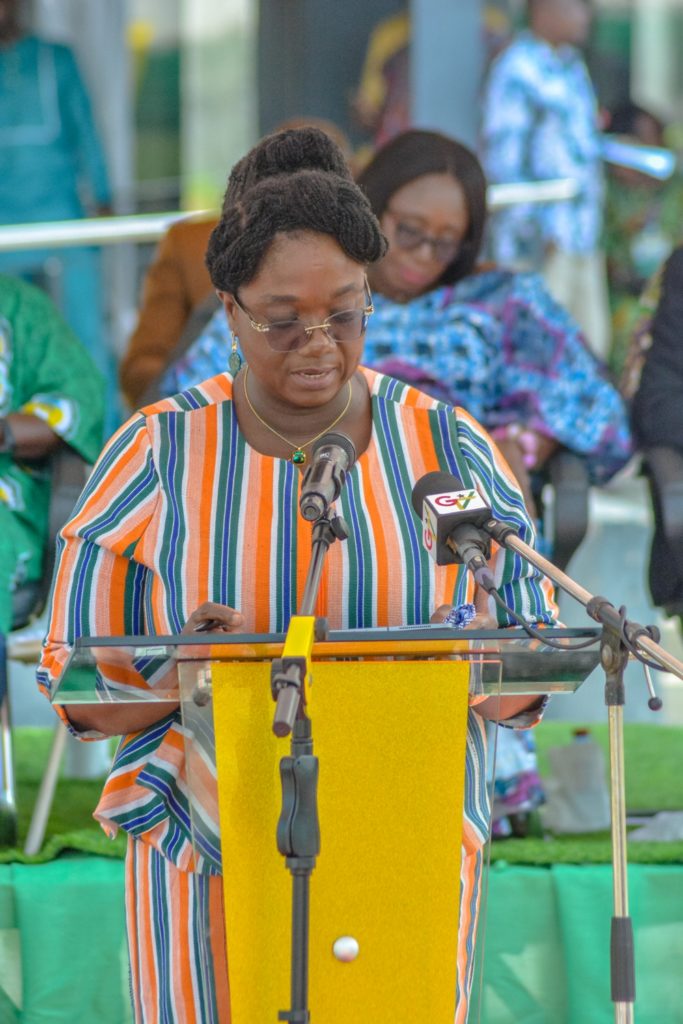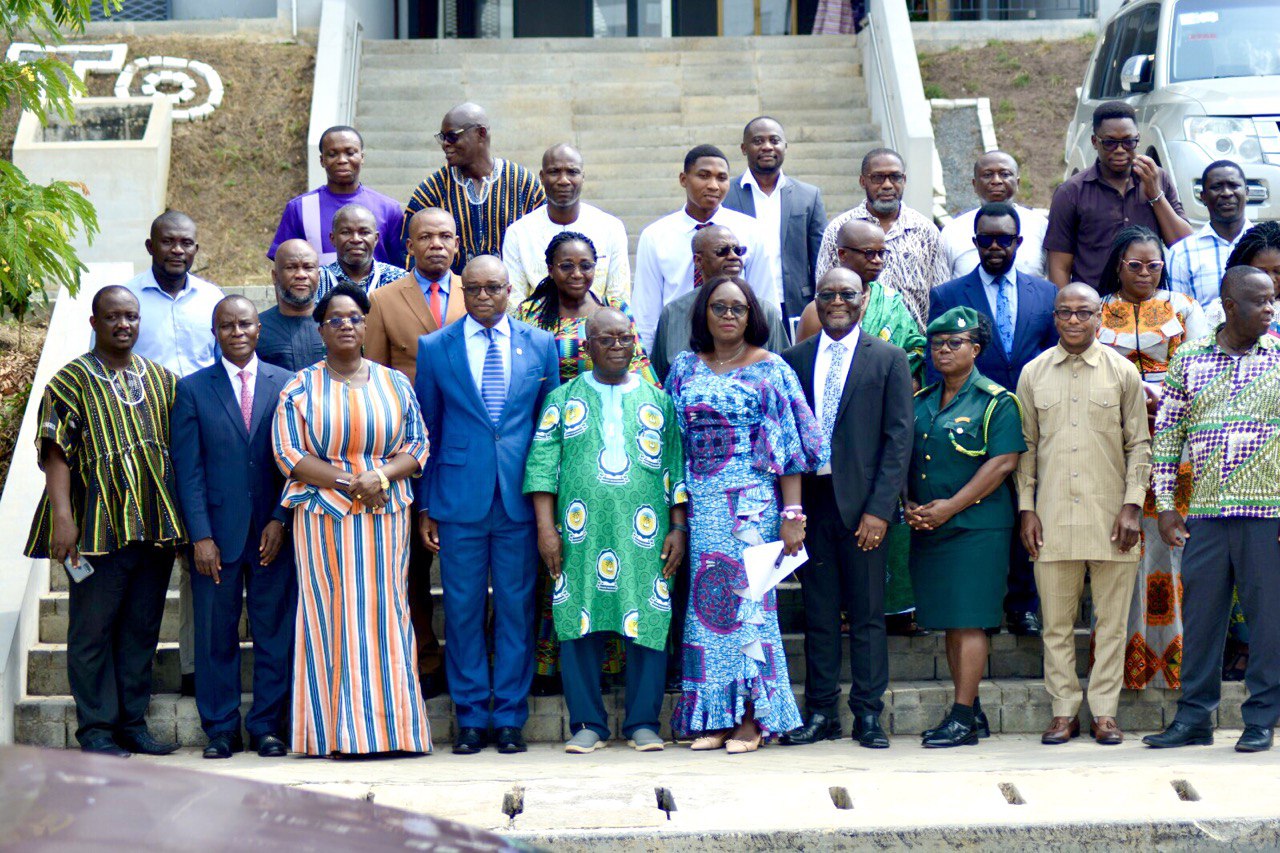The University of Environment and Sustainable Development (UESD) has held its third Commencement Lecture to officially kick-start the 2022/2023 academic year. The Lecture which was held at the forecourt of the Auditorium of the Multipurpose Building was on the theme, “Securing the Environment: Our Water, Our Future.”
It was attended by members of the University Community, students, the Clergy, representatives from the security services, and some invited guests. The Guest Speaker was a Water consultant with the WRI-CSIR, Rev. Dr. Ing. Appiah Duah, while the Deputy Minister of Education in charge of TVET, Hon. Mrs. Gifty Twum-Ampofo was the Guest of Honour.
In an address, the Vice-Chancellor, Prof. Eric Nyarko-Sampson reiterated that the Commencement Lecture is held to inform the public that work for the academic year has begun. On occasions like this, ‘the University settles on a topic that touches on an aspect of the environment it considers relevant and draws the attention of the world to it by inviting persons with expertise in itto spearhead a discussion on it. He continued that in so doing, the University attempts to work towards its mandate of securing the environment.
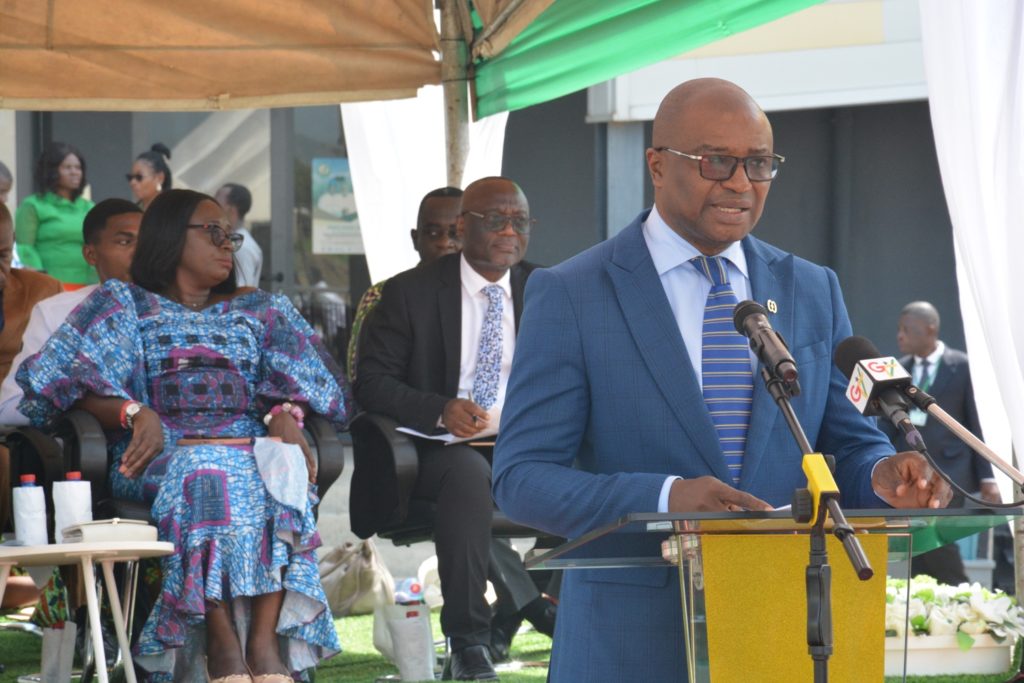
The focus for this academic year is on water, hence the theme: “Securing the Environment: Our Water, Our Future.’ Prof. Nyarko-Sampson stressed the importance of water as an indispensable commodity as it supports human existence and nurtures the ecosystem and agriculture. Regrettably, he said, water resources are becoming scarce due to factors such as population growth, climate change and other human activities.
He also touched on the need for Ghana to achieve the UN SDG Goal 6 which is, to “ensure availability and sustainable management of water and sanitation for all.” He explained that without pragmaticism, innovation and full commitment, the Goal will only remain a mirage. Prof. Nyarko-Sampson said, through active community involvement in creating awareness of the dangers of negative human activities which degrade the water sources, Ghana will make a significant step closer to sustaining endangered water resources to meet Goal 6.
The Vice-Chancellor impressed on the public to see water bodies and aquatic resources as financial investments relevant to continuous human survival. He indicated that, it rather makes economic sense to invest resources and efforts to protect and safeguard water bodies than to pay dearly for the effects.
The Guest Speaker, a Water Consultant with WRI-CSIR, Rev. Dr. Ing. Appiah Duah, said, even though Ghana has made significant strides in the provision of access to water, sadly, little progress has been made to the provision of its access.
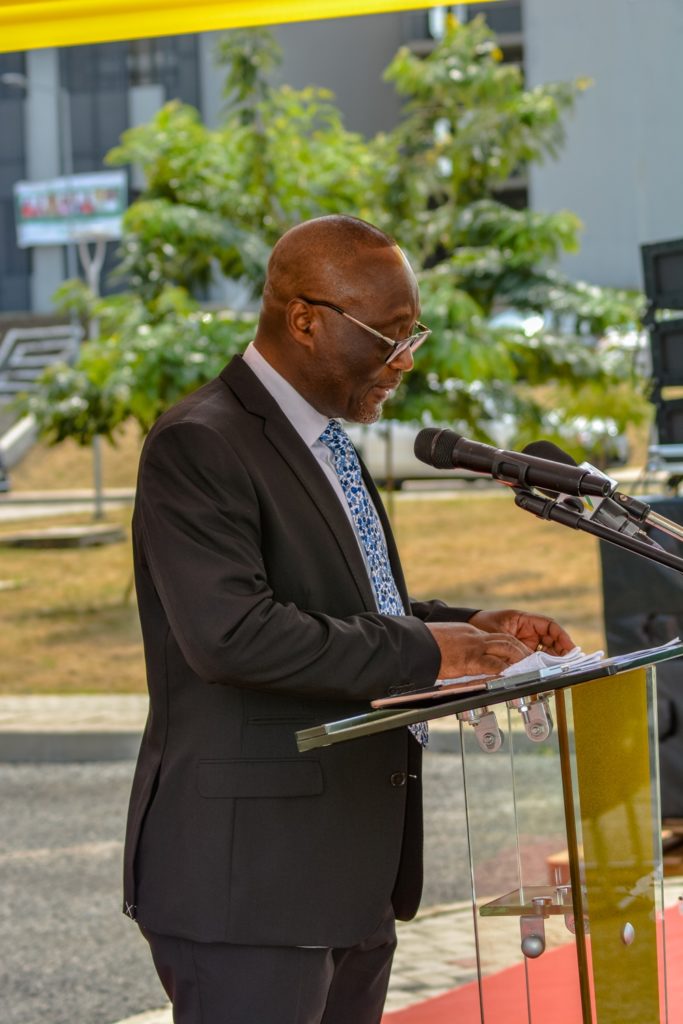
He made reference to a News report in which a health official attributed the phenomenon of babies born without eyes, nose, ears and mouth to unhygienic and contaminated water exposed to pregnant mothers which were actually caused by the activities of illegal mining.
He mentioned lead poisoning, organ impairment, renal dysfunction, nervous breakdown, cancer, silicosis, and convulsion as some of the diseases caused by toxic and hazardous chemicals like mercury, lead, arsenic and cyanide used for galamsey operations. Ing. Appiah Duah rehashed that depriving people of access to safe and hygienic water is a denial of their decent livelihood which subsequently voilates their fundamental human rights.
For the government to be able to live up to the bill, the Water Consultant called on the government to make conscious efforts to ensure that all regulatory agencies like the Water Resources Commission, Environmental Protection Agency, Minerals Commission and Ministry of Lands and Forestry all perform their respective roles as mandated by law.
The Guest of Honour, the Deputy Minister of Education in charge of T-VET, Mrs. Gifty Twum-Ampofo, commended the Management of UESD for instituting the annual Commencement Lecture which she described as laudable. She stated that the government is currently setting up ten (10) Science, Technology, Engineering and Mathematics (STEM) Senior High Schools across the country to augment the number of 2nd cycle institutions that offer Science. According to her, this is a more realistic approach to increasing the percentage of science graduates who are equipped with the skills needed to tackle the science and technological shortfalls which inhibit the nation’s fight against environmental sustainability and development.
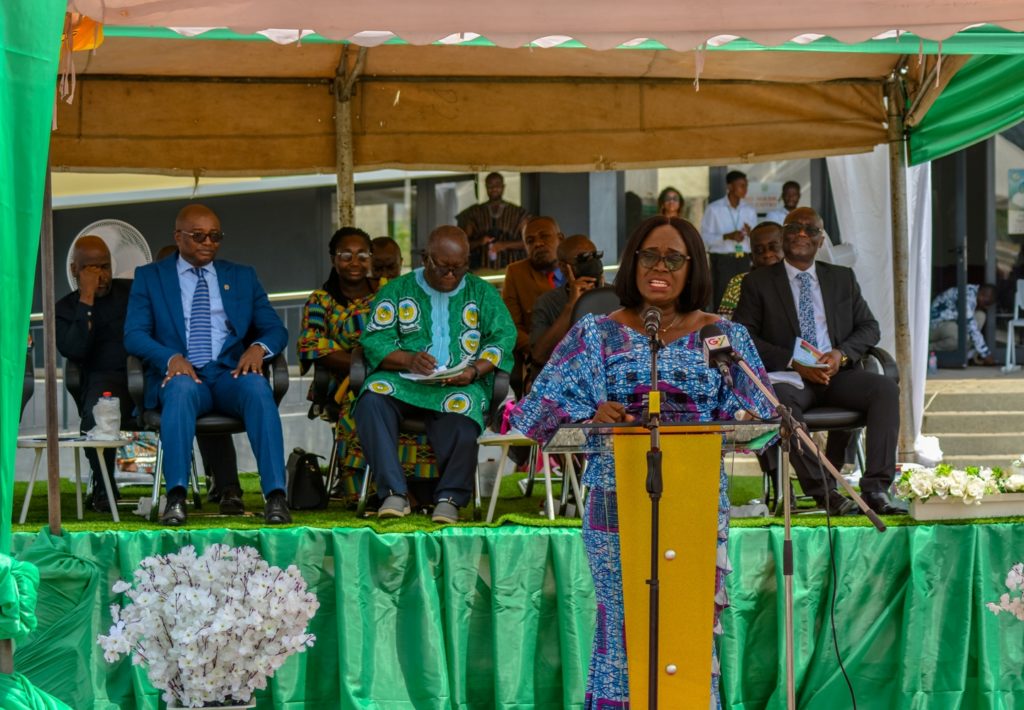
The Minister urged the public to be ambassadors within their communities to encourage people to subscribe to STEM schools in order to reduce over-crowding and subscription of schools that offer science programmes. This will form a relatively bigger force that will contribute greatly to the development of the nation, particularly, in developing schemes and technologies relevant to the protection and sustainability of water resources in Ghana and beyond.
The Chairman of the UESD Council who was also the Chairman for the Lecture, Prof. Ayertey said; water bodies, oceans, rivers, lakes and groundwater play a critical role in regulating climate as it supports biodiversity and serves as a means of livelihood to a large number of people in Ghana.
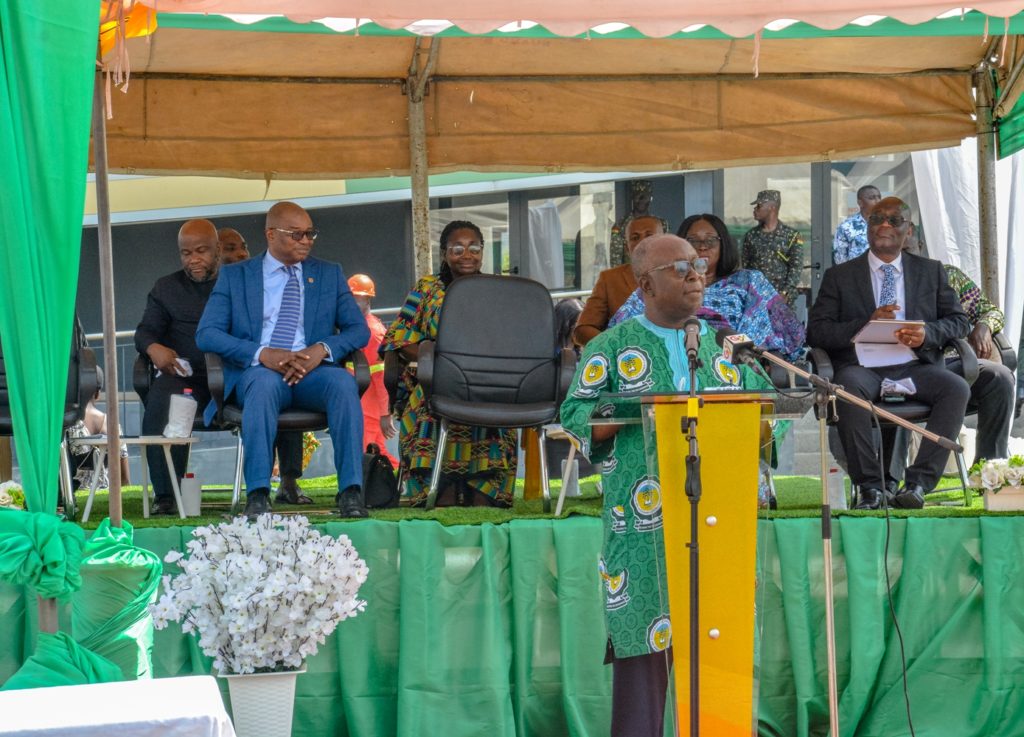
He however expressed fear, at the looming extinction of water resources on account of environmental factors and undesirable human activities such as pollution, climate change, over-extraction, illegal mining and water resource mismanagement. He called on faculty and management of the University, to let the theme of the Lecture reflect in all activities throughout the academic year.
There were goodwill messages from the Ghana Immigration Service and the Secretariat of Vice-Chancellors, Ghana.
The highlights of the Lecture were the outdooring of the UESD cloth and Flag and the launch of the UESD Students Handbook.
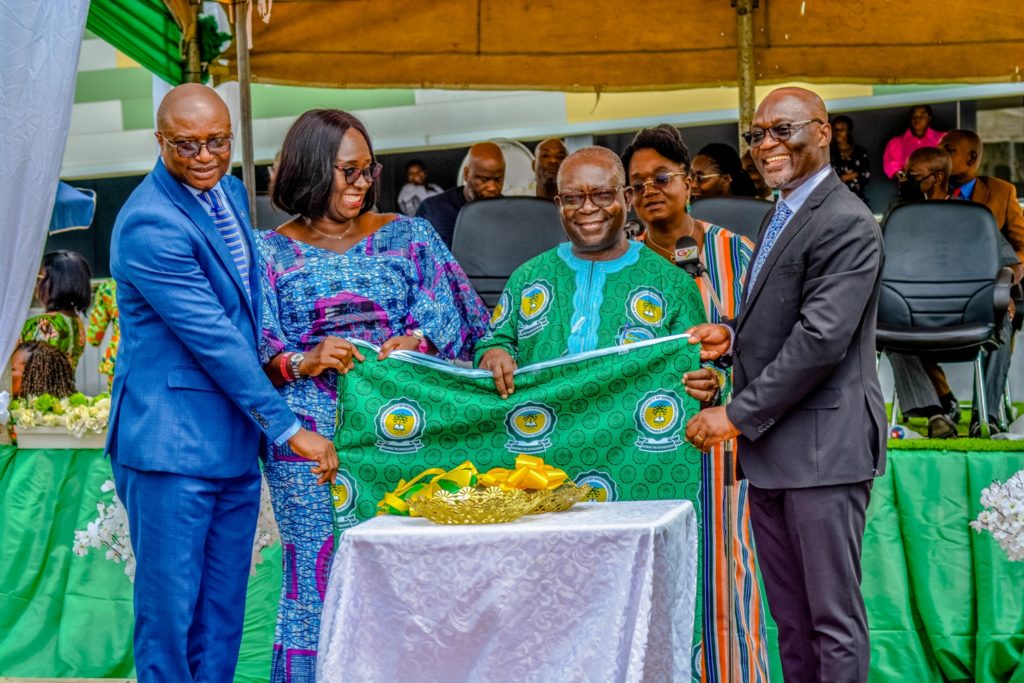
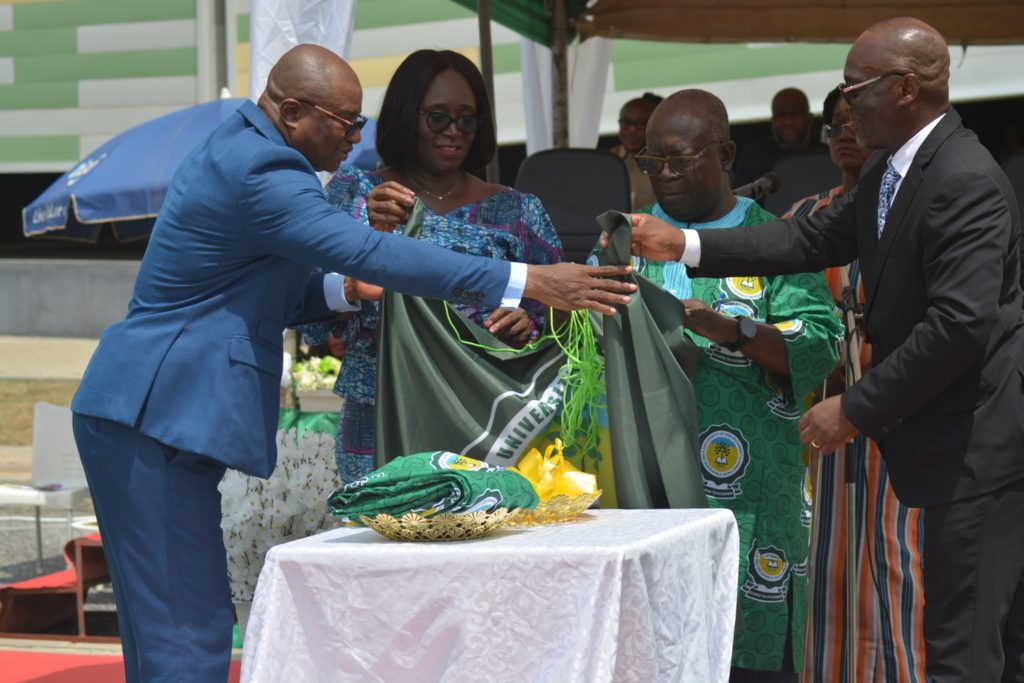
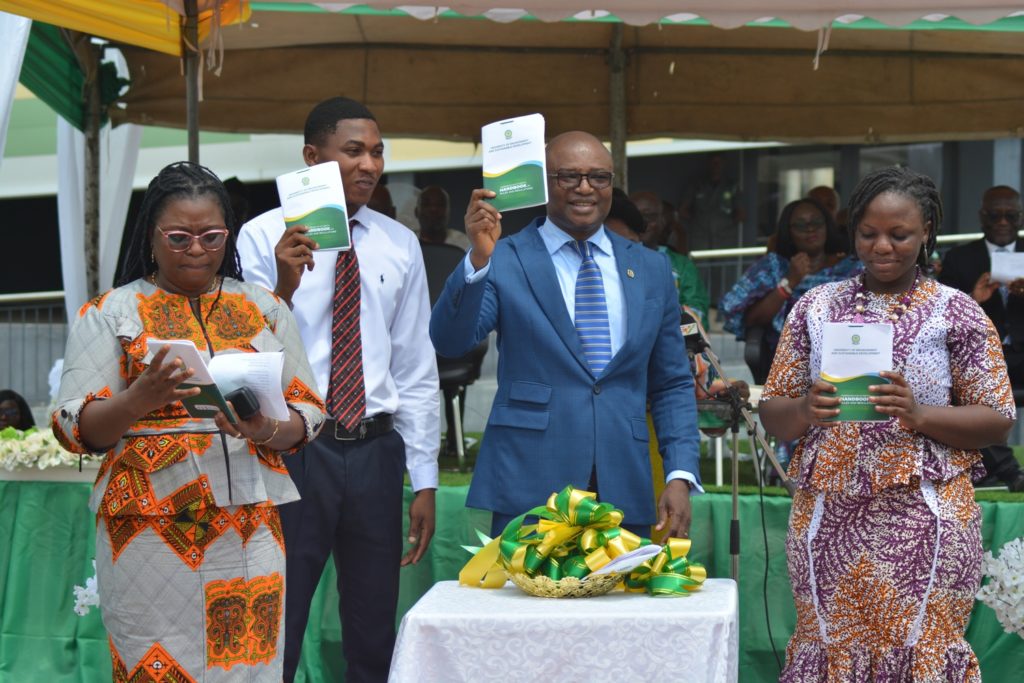
The Registrar of the University, Mrs. Mary Abena Agyepong was the Moderator of the Lecture.
